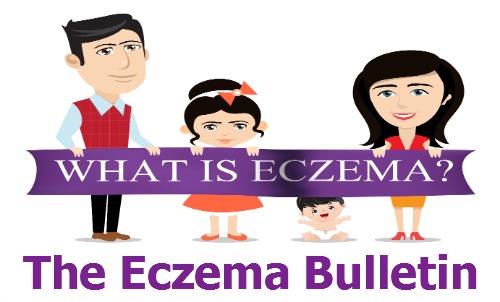
Issue #039 - Overusing Antibiotics
Welcome to October's edition of the Eczema Bulletin e-zine, and thank you for subscribing.
This is the 39th edition of the Eczema Bulletin. It will bring you articles and news about eczema, and also any updates to what-is-eczema.com. If you would like to add any suggestions for articles or news, or even add your own then I would love to hear from you
You can contact me here
This month's Eczema Bulletin includes
- October's Featured Article – Overusing Antibiotics
- My favourite eczema news article
- Tip of the Month
- 5 Ways To.....use ginger to manage your eczema
Overusing Antibiotics
If you or your child's eczema has ever become infected with staph bacteria, it is very likely that antibiotics have been prescribed.
Antibiotics can be great for dealing with the symptoms of infected eczema. But what happens if an infection reoccurs and antibiotics are prescribed regularly?
Antibiotics have been used since the 1940's to treat bacterial infections. One of the concerns of overusing antibiotics is that bacteria starts becoming resistant to them. The bacteria changes and becomes less affected by the antibiotic. Another issue is that antibiotics also kill the good bacteria that helps to keep your body healthy.
Both these issues mean that they may not do their job properly. This makes it harder to treat infections, so stronger antibiotics may be needed. All this is called antibiotic resistance.
Antibiotic resistance can be prevented or lessened by how and when antibiotics are taken.
You should
- take the
right dosage
- take at regular intervals, trying not to skip any
- finish the full course, not saving any for a later time
If you're regularly being prescribed antibiotics and have any concerns, then speak to your doctor.
It is better to do as much as you can to prevent an infection occurring. Limiting skin damage is important, as cracks in the skin allow bacteria to enter. You can read more about the itch-scratch cycle, here
Eczema News Article
Researchers in the UK have reported that there is a link between the levels of a certain vitamin B and the risk of eczema developing during pregnancy.
They have found when expectant mothers have low levels of nicotinamide during pregnancy, this may increase the chance of their baby developing eczema.
Nicotinamide levels can be increased through eating a healthy diet.
One of the researchers, Dr Sarah El-Heis, states that nicotinamide cream has been used to treat eczema, but the link between it and the development of eczema hasn't been studied before.
The findings may be able to help to make changes during pregnancy to reduce the risk of eczema developing.
Tip Of The Month - Your Cat and Your Eczema
If you have eczema and share your home with your feline friend, then you may notice that the symptoms can feel and look worse when you are at home.
It is well known that a cat's fur and the skin they shed, can irritate your skin. What is not so well known, is that your cat's saliva can also be an irritant. It is mainly the proteins in the saliva that are the cause.
If you think that your cat is having an affect on your eczema, the first thing to do is to stop them licking you. Or if they do then clear the area after.
You'll also find saliva in their fur and skin, from when they clean themselves. As they shed their fur and hair, it makes up part of the dust that is around your home.
The best solution is to regularly hoover and damp dust your home. This will remove the irritant, and damp dusting will stop it getting airborne and spreading around.
Another solution is to stop your feline friend from sitting, lying and sleeping on any
furniture that you sit, lie and sleep on. This may be harder if they have had a free reign of your home in the past, and you may not feel it necessary if you're happy to do regular thorough cleans.

